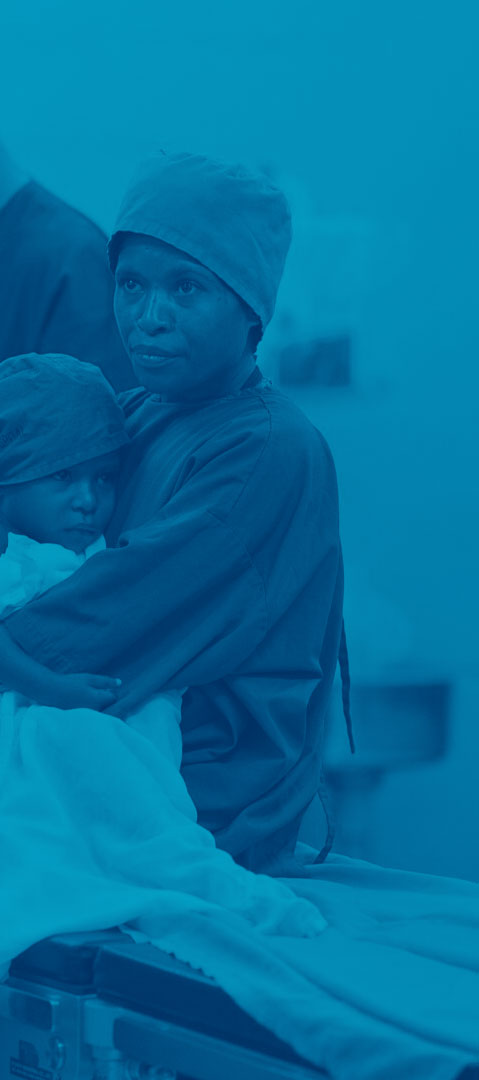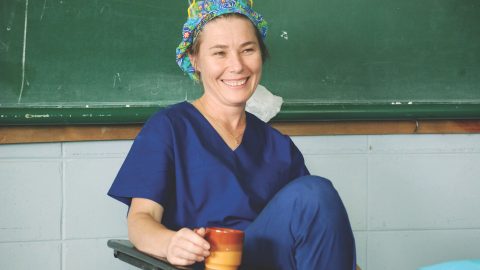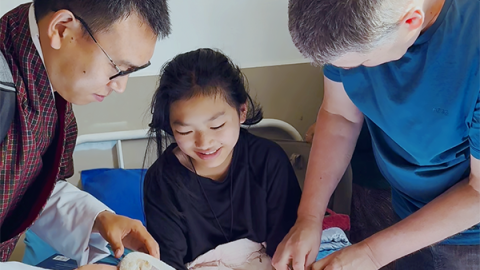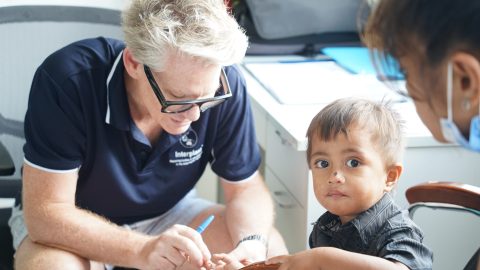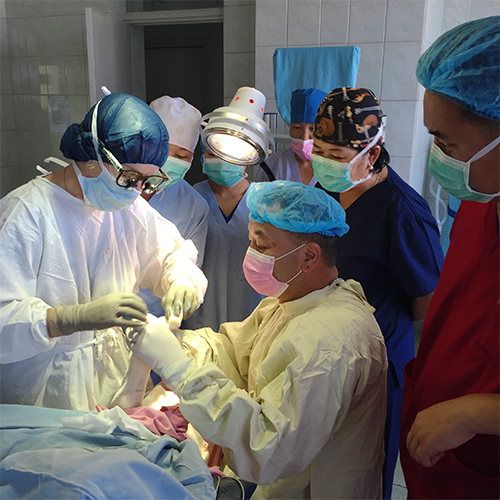
Committed to better outcomes
Mongolia is one of the least densely populated countries in the world. Over 68% of the 3.1 million people live in the country’s capital of Ulaanbaatar. Outside of urban areas stretches large expanses of desert plains, mountains and the Gobi Desert.
Since adopting the United Nations Millennium Declaration in September 2000, Mongolia has made huge improvements in maternal and child health by building a system of basic preventative services across the country. Despite low health expenditure (when compared to nations with a similar per capita GDP), Mongolia achieves stronger, more effective health outcomes than resource-rich peer countries. However, other areas of the healthcare system still require support to fully, sustainably support its communities.
Interplast have been honoured to support their continued journey towards safe, quality healthcare by building resilient, long-term relationships and responding to local priorities and goals.
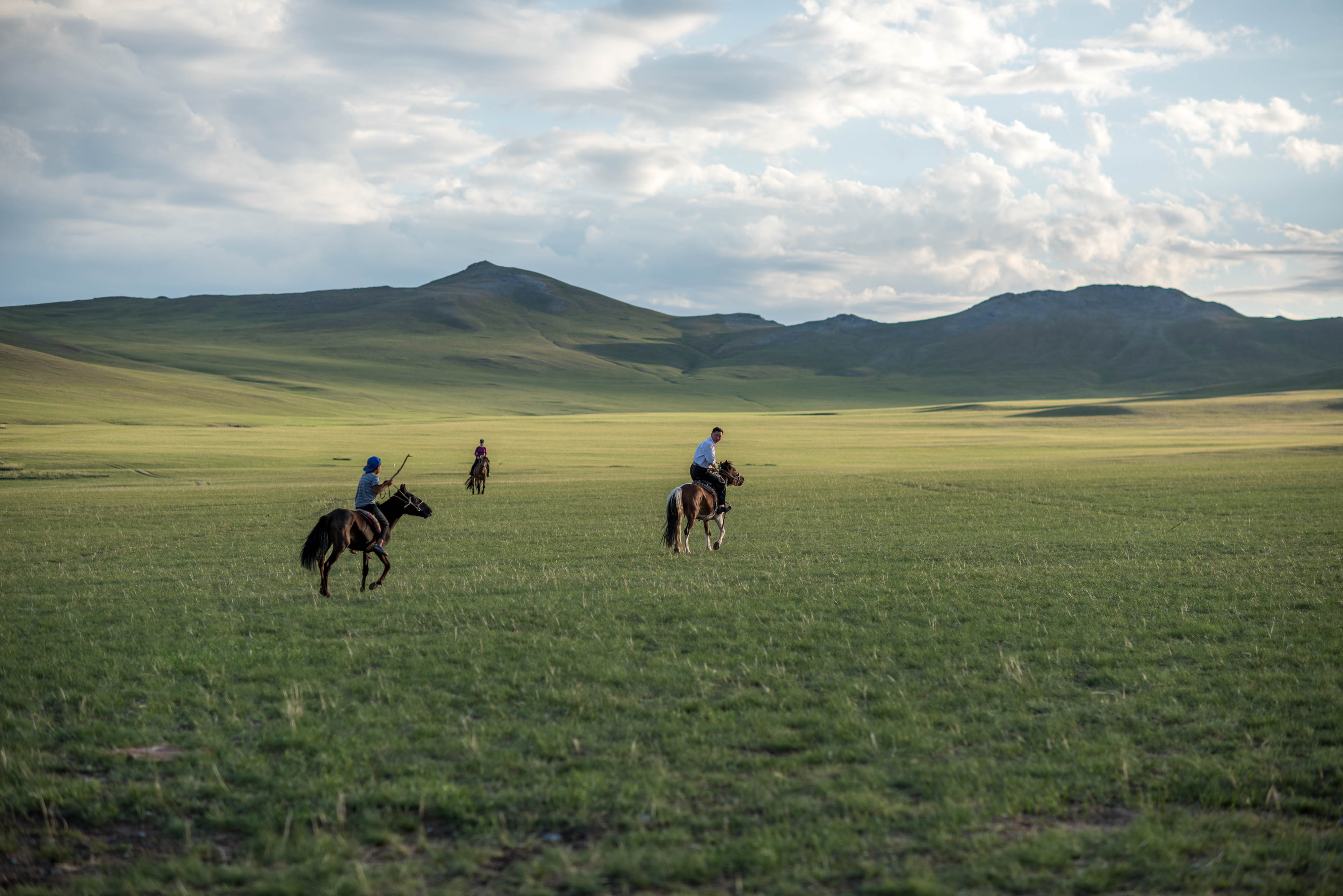
Increasing access to safe surgery for families living in remote places is a key goal of the program.
16 years of sustainable support
Since 2008, Interplast has been working in partnership with the Mongolian Society of Anaesthesiologists (MSA), the Australian Society of Anaesthetists (ASA) and its members, and the Australian Government, through the ANCP. This program has strengthened education and collaboration of Mongolian surgical, anaesthetic, nursing and allied health cohorts, and facilitated access to safe surgery and anaesthesia for patients.
Partnering with the MSA has ensured that change is locally-driven and sustainable. By channelling funding to cover some of the institutional operating costs, such as administration and support of the MSA Annual Scientific Conference, the MSA have been empowered to focus on delivering outcomes.
In 2019, we wrote our shared vision of a sustainable, locally-driven plastic and reconstructive surgery service, providing quality surgical and related medical outcomes in Mongolia into a five-year strategic plan. This plan has guided our activities up until this year.
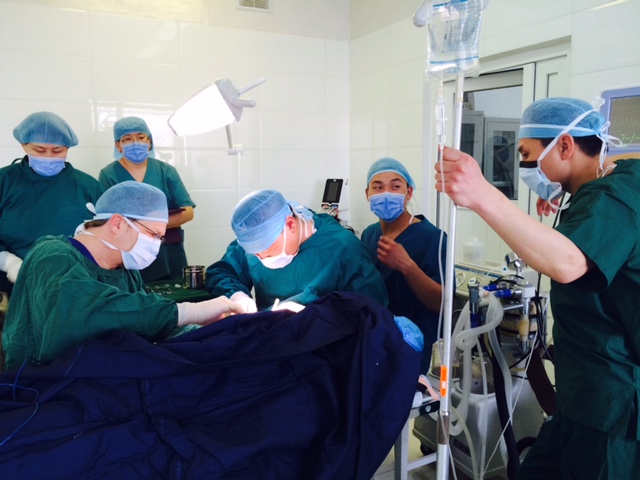
Interplast volunteers have worked alongside Mongolian counterparts to deliver on this strategic plan.
Capacity building in action
As well as financial support, Interplast volunteers have supported a number of in-person mentoring and clinical activities in Mongolia, including burns-focused training for surgeons, nurses and allied health staff across the country.
“People in the countryside usually lose time for burn surgery and treatment because they often can’t go to the city for surgery and treatment. But now we have learned the techniques to operate the surgery ourselves from the Interplast doctors, and it has been great help for our communities and rural people, especially children, to have the surgery and treatment locally in the province,” Interplast local partner, Associate Professor Chuluunbat explained.
The strength of the relationships our volunteers have developed with their Mongolian counterparts has undoubtedly strengthened their outcomes.
Interplast Honoured Member and volunteer Associate Professor David Pescod AO first visited Mongolia 20 years ago. After returning from his first two-week visit, a young Mongolian anaesthetist wrote to him asking for help. This anaesthetist was Dr Ganbold Lundeg, who is now a renowned practitioner and Secretary of the MSA.
“Before you can actually teach in a country, you have to learn for yourself what is happening there,” David told us, when he reflects on the early years he spent in Mongolia, talking to other anaesthetists and learning more about their education.
David has been instrumental in coordinating activities in Mongolia and working with the MSA to develop training material. He has seen first-hand the condition of Mongolian anaesthetic provision and training grow from “myths becoming facts” into its current, structured format.
“Probably the most important part of the training in Mongolia, was Ganbold got together a group of young anaesthetists and they formed a society of anaesthesia. And these people just worked so hard, and they had such kudos among their colleagues,” David said, “They drove anaesthesia. They were dedicated. We just provided a bit of fuel for the fire.”
Through the dedication of staff and collaboration of leaders like David and Ganbold, the profile of anaesthetic care has risen among medical trainees, and anaesthetists are better equipped in knowledge and resources. This includes rural anaesthetists, who are empowered through skill-sharing approaches and new developments in online training.
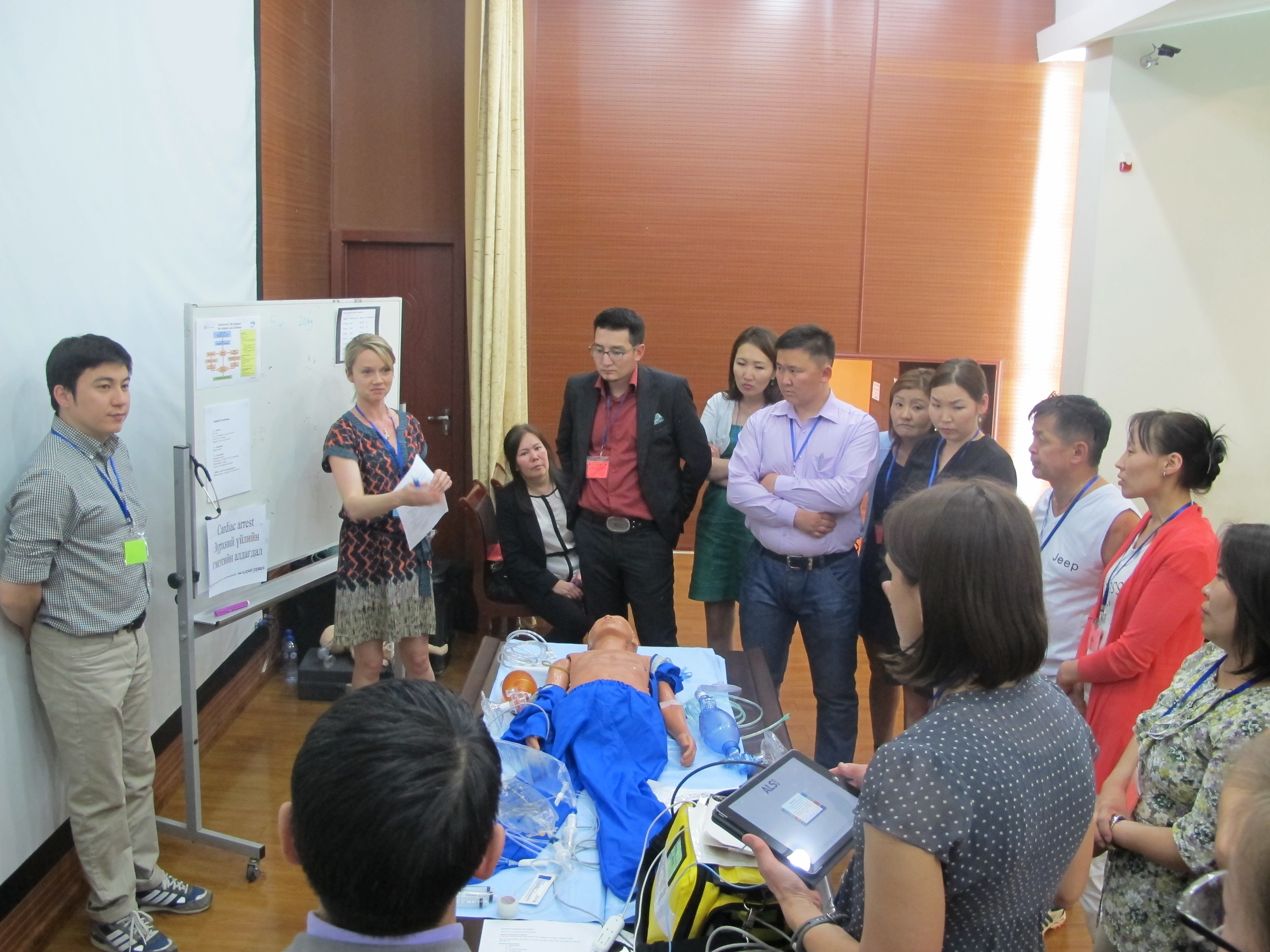
This program has supported rural clinicians to attend the MSA Annual Scientific Conference.
Looking to the future
Over 87% of the population of Mongolia is now considered to have reliable coverage to safe anaesthesia. While there is still work to be done to reach everybody, every patient who is now able to access safe, quality surgical care and anaesthesia is a reason to celebrate.
“I am now fully healed, with my arms outstretched… there was no need for (further) surgery, because there was no more pain,” said a 14-year-old patient from Mörön.
“Before surgery, I used to not be able to attend physical activity class, but now I can… I am very happy about this. Now there is no pain, no problem doing homework or any other thing,” said a 10-year-old patient from Ulaanbaatar.
Despite the disruption of the COVID-19 pandemic, Interplast’s commitment to supporting the MSA continues. While travel was temporarily suspended, we quickly pivoted to creating digital resources and facilitating online mentorship.
We will also continue our remote support into next year, assisting the MSA to continue providing education opportunities and outreach activities.
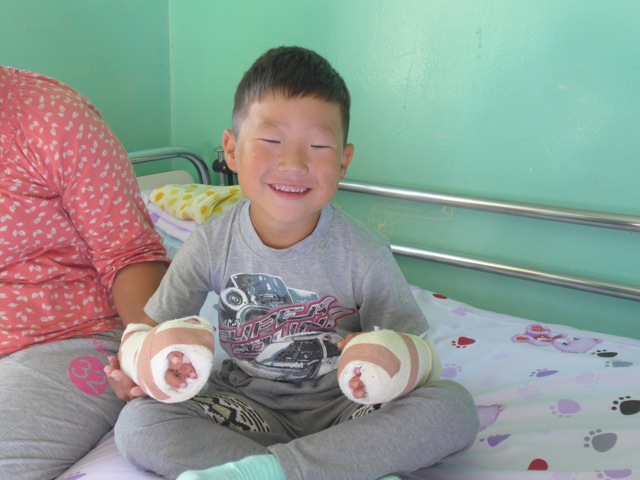
Acknowledgements
Our programs in Mongolia are made possible through the dedication of the MSA, and the support of the Australian Government through the ANCP, and the ASA.
This story includes material from our 2014-2020 program evaluation, led by Amanda Richmond and Erdenechimeg Ulziisuren (Chimgee).
